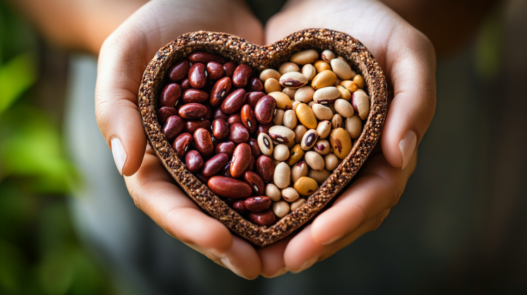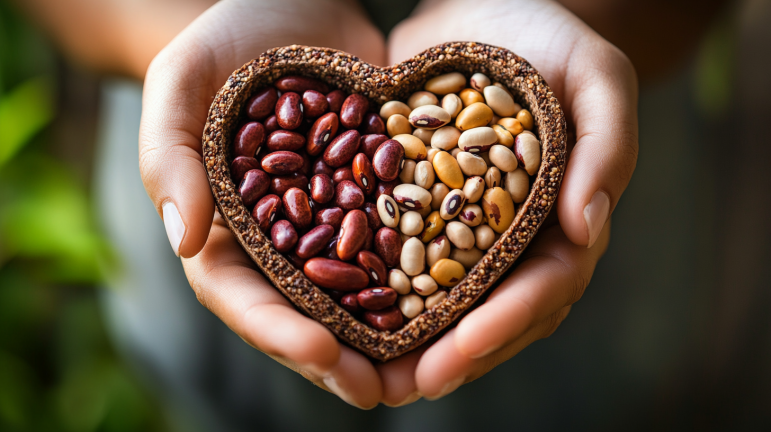When thinking about protein, most people immediately associate it with meat, eggs, and milk. However, just as the foundation of a house depends on the bricks and mortar, our muscles, skin, and even hair rely on protein. In our daily diet, protein comes from two main sources: animal protein (from meat, eggs, and dairy) and plant protein (from beans, grains, and nuts).

Recently, numerous studies have found that plant protein offers significant advantages for heart health and longevity. Here’s why you should consider adding more plant-based protein to your diet!
Studies Show: Plant Protein Boosts Heart Health and Extends Life
In December 2024, researchers from Harvard University published a study in the American Journal of Clinical Nutrition that demonstrated a strong link between higher intake of plant protein and improved cardiovascular health. They found that a higher ratio of plant to animal protein (1:1.3) led to a 19% reduction in cardiovascular disease risk and a 27% reduction in coronary heart disease risk.
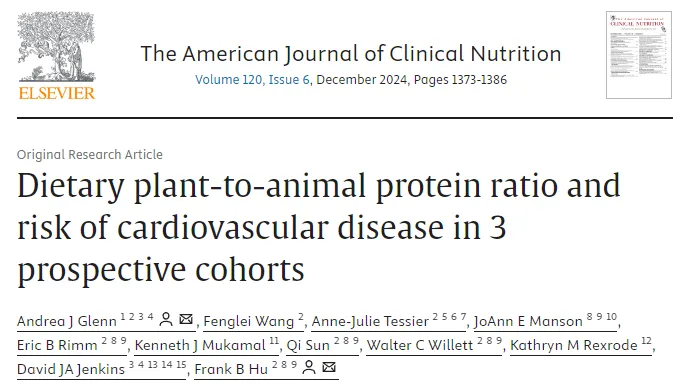
Research screenshots
The study included more than 200,000 participants and tracked their dietary habits over 30 years. During this period, 16,118 individuals developed cardiovascular diseases. The results showed that the higher the proportion of plant protein in the diet, the lower the risk of cardiovascular disease and coronary heart disease. For example, substituting just 3% of animal protein with plant-based protein could reduce the risk of cardiovascular disease by 18% and coronary heart disease by 24%. This was especially true when the plant protein came from high-quality sources like nuts and legumes.

In addition to cardiovascular benefits, a growing body of research also supports the idea that plant-based protein can help extend lifespan. In September 2024, a study by researchers at Harbin Medical University published in the European Journal of Nutrition found that higher plant protein intake was associated with slower aging.
Moreover, a February 2024 study from Canadian researchers published in Nature Food found that replacing red meat, processed meats, and dairy with plant protein could reduce the risk of chronic diseases and extend lifespan. The study participants who replaced 50% of their red meat and processed meat with plant-based proteins experienced an increase in life expectancy by 8.7 months and 7.6 months, respectively.

Further research by Harvard University in January 2024, published in the American Journal of Clinical Nutrition, revealed that a higher intake of plant protein is linked to a longer healthy life. Individuals who consumed more plant protein in their middle age had a 46% greater chance of staying healthy and living longer in their later years. Just 10 grams of additional plant protein per day increased the probability of a longer, healthier life by 35%.
Plant Protein vs. Animal Protein: Natural Advantages
In the past, people often heard the saying “eating beans is better than eating meat.” Modern research now supports this idea, showing that plant proteins offer several natural advantages compared to animal proteins.
1. Cholesterol-Free – Reducing Cholesterol Intake
For people with high cholesterol or cardiovascular issues, doctors often recommend reducing cholesterol-rich foods. Plant protein is ideal in this case because it contains virtually no cholesterol. As a result, plant proteins help minimize the negative impact of cholesterol on heart health.

2. Low in Saturated Fat – Protecting Cardiovascular Health
Compared to animal proteins found in pork, beef, or lamb, plant proteins contain very little saturated fat. Excessive saturated fat intake can raise cholesterol, triglycerides, and low-density lipoprotein (LDL) levels in the blood, leading to increased risk of atherosclerosis, coronary heart disease, and hypercholesterolemia over time.
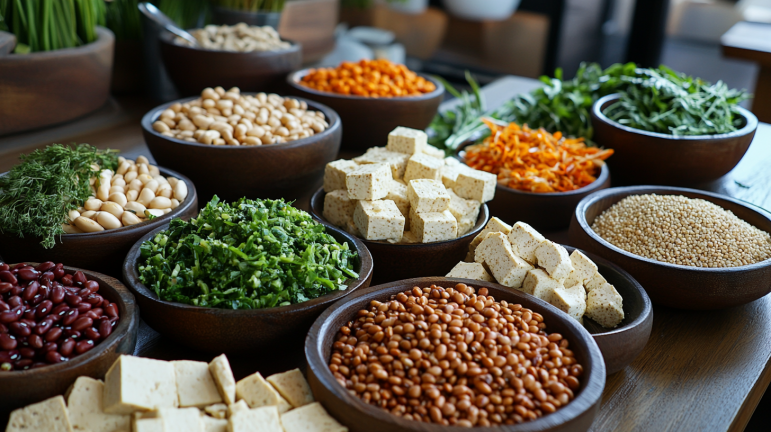
3. Rich in Dietary Fiber – A Multitude of Health Benefits
Many people today do not consume enough dietary fiber, which can lead to various digestive and health problems. Plant-based proteins, however, are often rich in dietary fiber, helping to address this deficiency. Fiber helps improve digestion, relieve constipation, and control blood sugar levels, among other benefits.

4. Lactose-Free – Ideal for Lactose Intolerance
For individuals with lactose intolerance, consuming dairy products can lead to digestive discomfort. Since plant protein is naturally free of lactose, it’s an excellent alternative for those who have difficulty digesting dairy.
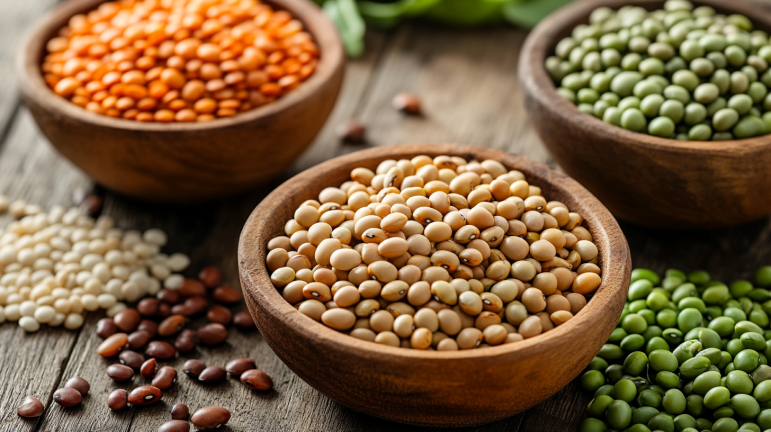
Top 5 Plant-Based Proteins Recommended by Experts
While there are many types of plant-based protein foods, some are considered superior in terms of digestibility and nutritional value. According to Professor Peng Xingyun from the College of Food Science and Nutritional Engineering at China Agricultural University, certain plant-based proteins stand out. Here are the top 5:
1. Soy
Soybeans contain approximately 35% protein and have an absorption rate of over 0.9, which is comparable to the absorption rate of protein from meat and eggs. Soy is one of the best plant-based proteins available. Processed soy products like soy milk, tofu, and tempeh provide high-quality protein and are excellent substitutes for meat.
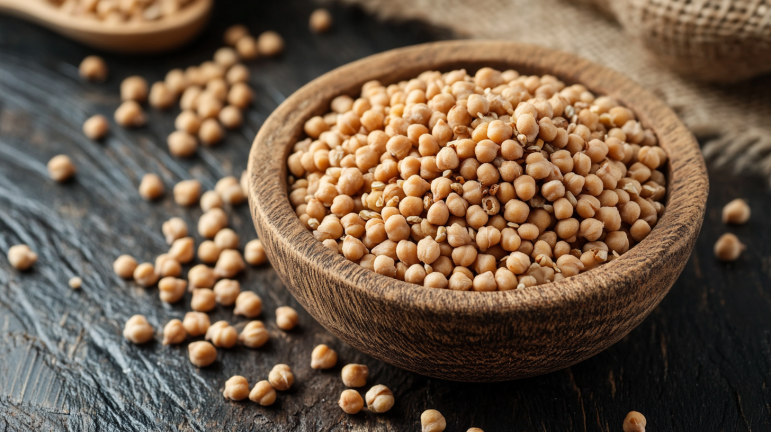
2. Peas
Although peas have an absorption rate of only 0.69, they still contain all the essential amino acids the body needs. They are more affordable and accessible compared to other plant-based proteins like quinoa, making them an excellent choice for most people.
3. Quinoa
Quinoa contains around 14.1% protein with an absorption rate of about 0.7. It’s a high-quality plant protein that provides all the essential amino acids the body requires. Despite its slightly lower absorption rate than buckwheat, quinoa is still considered one of the best plant protein sources.
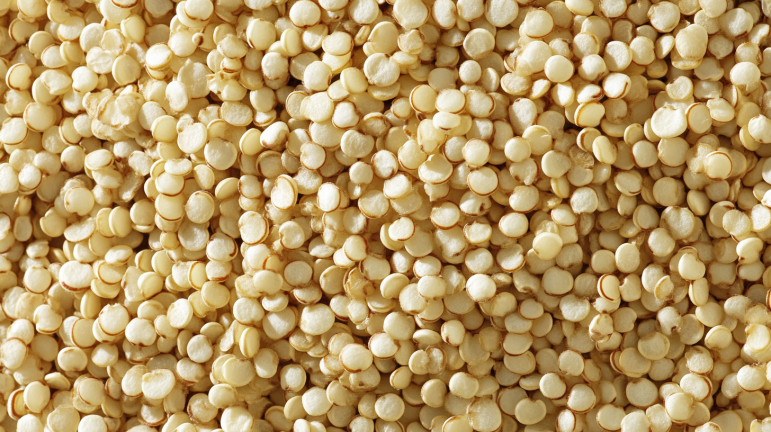
4. Buckwheat and Chickpeas
Buckwheat and chickpeas contain 9% and 23% protein, respectively. They are rich in lysine, an amino acid that is often lacking in staple grains like wheat and rice. Combining these grains and legumes with other staple foods can ensure a complete amino acid profile.
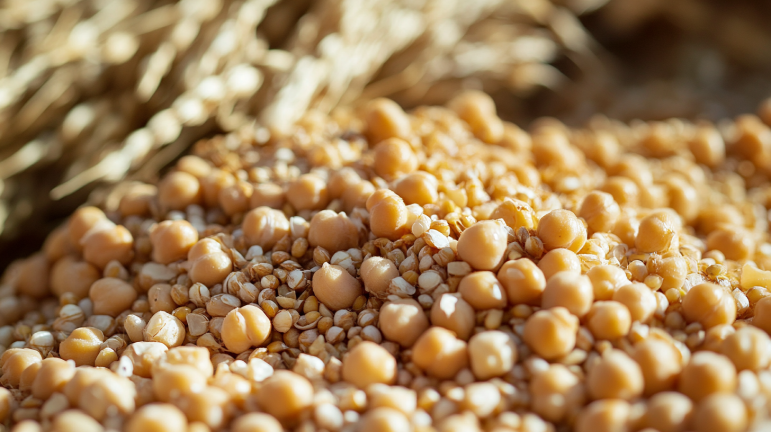
5. Peanuts and Wheat
Although peanuts and wheat contain about 12% protein, their nutritional quality is lower compared to other plant proteins. Nonetheless, they still provide a reasonable amount of protein and can be a good addition to a balanced diet.
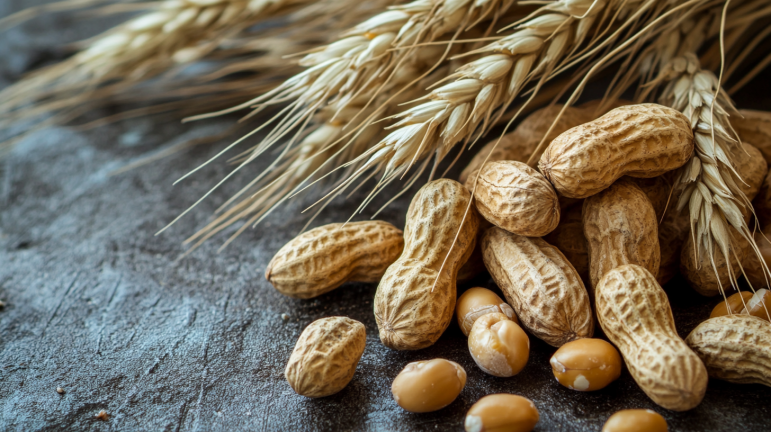
Conclusion
Switching to a diet that includes more plant-based proteins not only supports heart health but also promotes longevity. With their numerous advantages—such as being cholesterol-free, low in saturated fats, rich in fiber, and ideal for those with lactose intolerance—plant proteins are an essential part of a healthy diet. Try incorporating more of these plant-based proteins into your meals and enjoy the long-term health benefits they bring!







